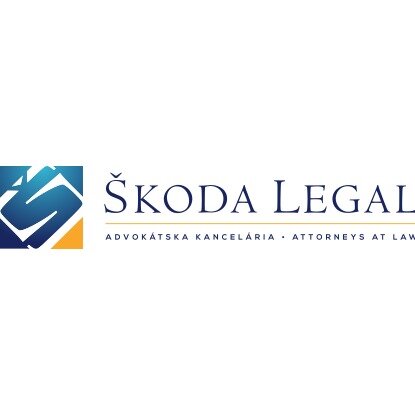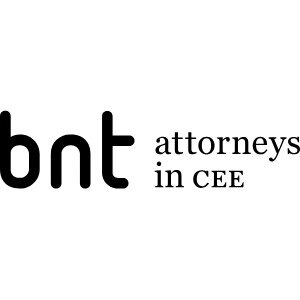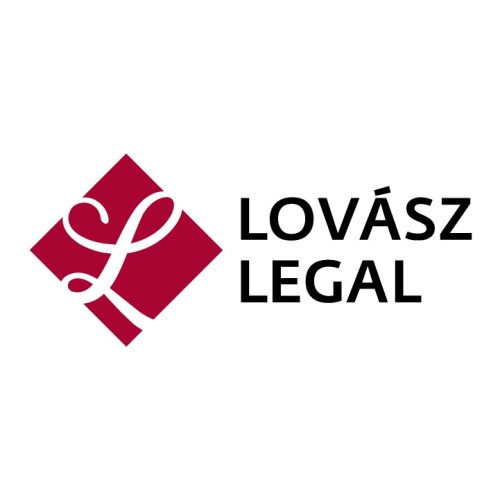Best Oil, Gas & Energy Lawyers in Slovakia
Share your needs with us, get contacted by law firms.
Free. Takes 2 min.
Or refine your search by selecting a city:
List of the best lawyers in Slovakia
About Oil, Gas & Energy Law in Slovakia
Oil, gas, and energy law in Slovakia is a complex and multifaceted area of practice that navigates the regulation, management, and utilization of the country's natural resources. Slovakia is strategically positioned in Central Europe, making it a crucial transit country for energy resources, particularly natural gas. The nation has made significant advancements in diversifying its energy sources, including the development of nuclear energy, renewable sources, and maintaining a robust gas transit system. Understanding local laws and regulations is crucial for any entity or individual involved in this sector, as Slovakia's legal environment is influenced both by local and European Union directives.
Why You May Need a Lawyer
There are several reasons why you might need legal assistance in the Oil, Gas & Energy sector in Slovakia:
- Regulatory Compliance: Navigating the intricate regulatory environment, including adherence to local and EU laws, can be challenging and may require specialized legal guidance.
- Contractual Agreements: Drafting and negotiating contracts with suppliers, distributors, or joint ventures often require the expertise of someone well-versed in energy law.
- Dispute Resolution: Conflicts may arise with regulatory bodies, partners, or other stakeholders, necessitating legal intervention to resolve disputes effectively.
- Permitting and Licensing: Securing the necessary permits and licenses for exploration, production, and operation demands thorough knowledge of the legal requisites.
- Environmental Concerns: Issues concerning environmental compliance and sustainability are paramount and might require the input of legal experts.
Local Laws Overview
Slovakia's legal framework for oil, gas, and energy is influenced by both national legislation and European Union regulations. Some key aspects include:
- Energy Law: Regulates the generation, transmission, and distribution of electricity and gas, including market liberalization and consumer rights.
- Renewable Energy Sources Act: Encourages the development of renewable energy and outlines incentives and regulations supporting its integration.
- Mining Act: Governs the exploration and extraction of mineral resources, including hydrocarbons.
- Environment Protection Laws: Ensure compliance with environmental standards and aim to minimize the ecological impact of energy projects.
- Building Act: Outlines the requirements for obtaining construction permits necessary for energy infrastructure.
Frequently Asked Questions
1. What are the primary sources of energy in Slovakia?
The primary sources include nuclear energy, natural gas, coal, and an increasing reliance on renewable energy sources such as hydro, solar, and wind power.
2. How does Slovakia ensure the security of its energy supply?
Slovakia has strategic gas storage capacities and maintains diversification in energy imports. It also participates in European energy networks to bolster supply security.
3. Is Slovakia a member of any international energy organizations?
Yes, Slovakia is part of several international organizations, including the International Energy Agency (IEA) and adheres to EU energy policy frameworks.
4. What incentives are available for renewable energy projects in Slovakia?
The government offers feed-in tariffs, subsidies, and tax breaks to promote the development of renewable energy projects.
5. What does the licensing process look like for oil and gas exploration?
It involves obtaining exploration permits from the Ministry of Economy, complying with environmental regulations, and, in some cases, bidding processes.
6. Are there specific regulations for energy efficiency?
Yes, Slovakia has laws aligned with the EU energy efficiency directive, mandating measures to improve energy conservation across various sectors.
7. Can foreign companies invest in Slovakia's energy sector?
Foreign investment is permitted and encouraged, with strategic partnerships often formed under EU investment frameworks.
8. How are energy tariffs regulated in Slovakia?
Tariffs are regulated by the Regulatory Office for Network Industries (ÚRSO), ensuring fair pricing while promoting market competition.
9. What role does the public utilities commission play?
It oversees the regulation of electricity and gas networks, ensuring compliance with legal standards and safeguarding consumer rights.
10. How does Slovakia address environmental concerns related to energy projects?
Environmental impact assessments are mandatory for energy projects, and there are strict regulations to mitigate ecological risks and promote sustainable practices.
Additional Resources
For those seeking further information or legal assistance, the following resources may be beneficial:
- Ministry of Economy of the Slovak Republic: The primary government body overseeing energy policies and regulations.
- Regulatory Office for Network Industries (ÚRSO): Responsible for monitoring and regulating energy prices and ensuring market competition.
- Slovak Renewable Energy Agency (SIEA): Provides information on renewable energy incentives and projects.
- Slovak Bar Association: Can help locate legal professionals specialized in energy law.
- European Union Directives and Policy Documents: Offer guidelines and legal frameworks concerning the energy sector relevant to Slovakia.
Next Steps
If you need legal assistance in the field of Oil, Gas & Energy in Slovakia, consider the following steps:
- Research Legal Firms: Identify law firms with expertise in energy law and a strong understanding of both domestic and EU energy regulations.
- Consult with Experts: Schedule consultations to discuss your specific needs, ensuring that the lawyer has experience relevant to your particular situation.
- Assessment and Planning: Work with your legal advisor to conduct a thorough assessment of your situation, including compliance checks and risk management strategies.
- Engagement: Once satisfied, formally engage the legal services to ensure you have support in navigating the regulatory landscape effectively.
- Stay Updated: Keep abreast of any changes in local and EU energy laws that could impact your situation, seeking further legal advice as necessary.
Lawzana helps you find the best lawyers and law firms in Slovakia through a curated and pre-screened list of qualified legal professionals. Our platform offers rankings and detailed profiles of attorneys and law firms, allowing you to compare based on practice areas, including Oil, Gas & Energy, experience, and client feedback.
Each profile includes a description of the firm's areas of practice, client reviews, team members and partners, year of establishment, spoken languages, office locations, contact information, social media presence, and any published articles or resources. Most firms on our platform speak English and are experienced in both local and international legal matters.
Get a quote from top-rated law firms in Slovakia — quickly, securely, and without unnecessary hassle.
Disclaimer:
The information provided on this page is for general informational purposes only and does not constitute legal advice. While we strive to ensure the accuracy and relevance of the content, legal information may change over time, and interpretations of the law can vary. You should always consult with a qualified legal professional for advice specific to your situation.
We disclaim all liability for actions taken or not taken based on the content of this page. If you believe any information is incorrect or outdated, please contact us, and we will review and update it where appropriate.
Browse oil, gas & energy law firms by city in Slovakia
Refine your search by selecting a city.














